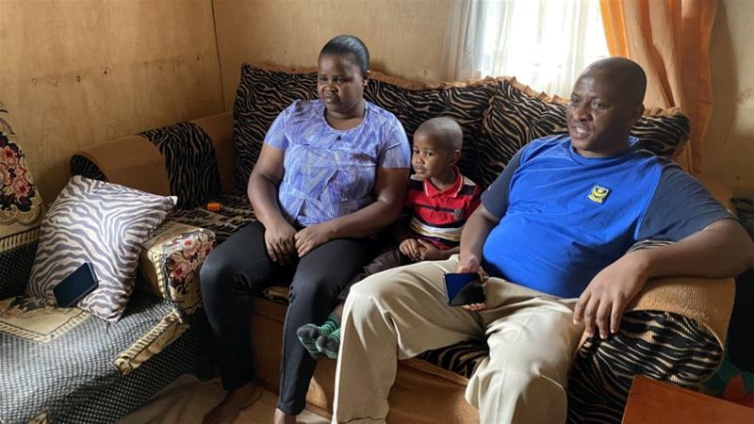Five-year-old Kenyan student Miguel Munene sits between his parents, holding their hands as he watches cartoon characters teaching him to pronounce "fish".
The television has replaced Munene's teachers and classmates after the government shut schools indefinitely in March to curb the spread of the novel Coronavirus. They are closed until at least January.
Many children do not have the option to learn online. The United Nations children's agency, UNICEF, says at least half of sub-Saharan Africa's schoolchildren do not have internet access.
So some, like Miguel, watch a cartoon made by Tanzanian non-profit organisation Ubongo, which offers television and radio content for free to African broadcasters.
"Other programmes are just for fun, but Ubongo is helping children," Miguel's mother Celestine Wanjiru told Reuters news agency. “He can now differentiate a lot of shapes and colours, both in English and Swahili."
In March, programmes by Ubongo - the Kiswahili word for brain - were broadcast to an area covering about 12 million households in nine countries, said Iman Lipumba, Ubongo's head of communications.
That rose to 17 million in 20 countries by August. "The COVID-19 pandemic has really forced us to rapidly grow," Lipumba said.
A group of artists, innovators and educators set up Ubongo TV in Tanzania in 2014.
It has received about $4m in grants since, and earned $700,000 from YouTube, product sales, character licensing and co-production of programmes.
For Miguel and other school children, programmes like Ubongo's are their only option to learn for now.
Kenya's education ministry says schools can only reopen when the number of Covid-19 cases drops substantially.
Kenya has had at least 36,000 confirmed cases and more than 620 deaths, health ministry data showed.
"You have the kid with you all the time so when you have such programmes, they are a big help," Patrick Nyaga, Miguel’s father, a security guard, told Reuters.
But television cannot completely replace teaching.
"The way the children learn through programmes is different [from] the way they interact with others and teachers," Nyaga said. "We are hoping that they open soon."
Latest Stories
-
Ghanaian youth unaware of their right to hold politicians accountable – Youth Bridge Foundation
26 mins -
Judge delays Trump sentencing for a third time
43 mins -
2024 WAFCON: Ghana drawn against defending champions South Africa in Group C
1 hour -
Photos from DW-JoyNews street debate on ‘galamsey’
2 hours -
Mimmy Yeboah: Blending heritage with global sophistication, confidence redefined through couture
2 hours -
100 Most Influential People Awards 2024: Brain Hill International School’s Director Mary Anane Awuku honoured
3 hours -
Akufo-Addo commissions 97-km Tema-Mpakadan railway line
3 hours -
Majority requests recall of Parliament
3 hours -
Kanzlsperger and Professor Quartey support WAFA with medical Donation
3 hours -
Gideon Boako donates 10 industrial sewing machines to Yamfo Technical Institute
3 hours -
‘Golden Boy’ Abdul Karim Razak honored at WAFU-B general assembly
3 hours -
Buipewura Jinapor secures Vice Presidential position in National House of Chiefs with record votes
4 hours -
2024 election: I want results to come out like ‘milk and honey’ – Toobu
4 hours -
Ghana’s Henry Bukari hands over chairmanship of ECOWAS Brown Card Council of Bureaux
4 hours -
Residents of Dome-Kwabenya on edge ahead of December elections
4 hours

